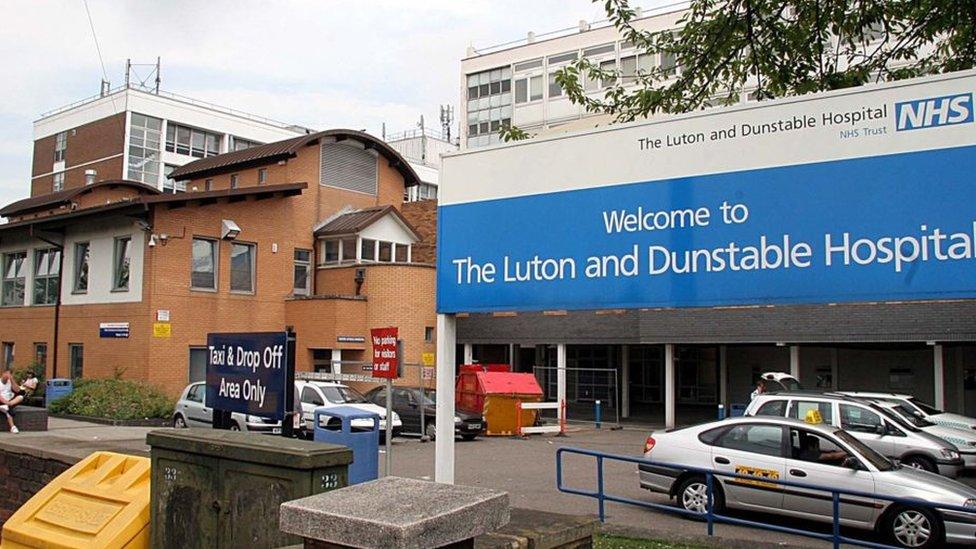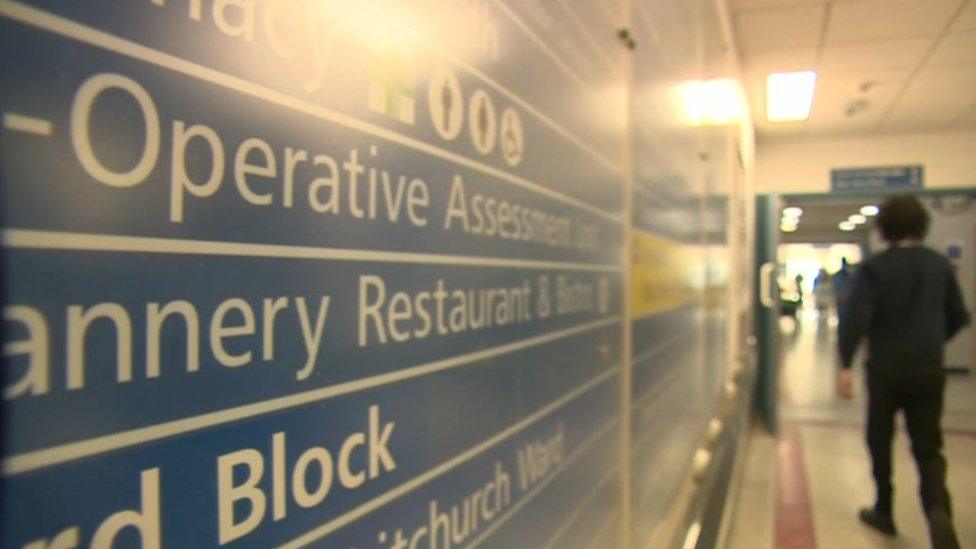Millie Creasy: Luton and Dunstable Hospital criticised over girl's death
- Published

Millie Creasy died on 5 August after suffering an "unsurvivable" brain injury
A hospital has been criticised over the death of a seven-year-old girl who was sent home after a seizure.
Millie Creasy was admitted to the Luton and Dunstable Hospital "immediately after the seizure" in July 2018 but was later discharged, a coroner said.
Millie was readmitted to the hospital four hours later but she had suffered an "unsurvivable" brain injury.
A spokeswoman for the hospital said it did not "identify any failures which would have led to a different outcome".
In a prevention of future deaths report, coroner Emma Whiting said an earlier diagnosis could have saved her.
Ms Whitting, senior coroner for Bedfordshire and Luton, said in the Regulation 28 report, external that Millie "suffered a prolonged 30-minute seizure at home" between 13:40 and 14:10 on 31 July 2018.
She was treated for a "suspected infection" at the Luton and Dunstable Hospital's emergency department before being transferred to the paediatric assessment unit for "ongoing management and further investigations", the report said.
Ms Whitting said Millie was discharged at 20:40 after being clinically assessed, but no additional neurological observations took place.

Coroner Emma Whiting said an earlier diagnosis could have saved Millie
Millie was readmitted to the paediatric unit at 00:30 on 1 August after her condition deteriorated.
She was "still awaiting a senior clinical review" when she suffered the brain injury, Ms Whitting said.
"Although she was subsequently transferred to the Paediatric Intensive Care Unit at St Mary's Hospital, her brain injury was recognised as unsurvivable," she added.
Millie died four days later, on 5 August.
Ms Whitting said Millie's "chances of survival" could have been "improved" if her condition had been identified earlier.
She said she was concerned the "potential need" for strategies to treat the condition were not considered by the Luton and Dunstable NHS Trust.
Dr Beryl Adler, consultant paediatrician and divisional director for children's and women's health at the hospital said Millie's case was "complex and exceptionally rare".
"In response to the coroner's request, we have undertaken a detailed investigation to assure ourselves and her family that we provided the right care and did what we could.
"While we did not identify any failures which would have led to a different outcome for Millie, we have used the opportunity to reflect and learn about how we manage clinically challenging cases of children presenting with seizures, to ensure our care is the very best it can possibly be."